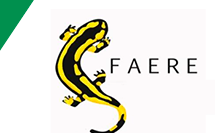Stated preference surveys are usually carried out in one session, without any follow-up inter-
view after respondents have had the opportunity to experience the public goods or policies
they were asked to value. Consequently, a stated preference survey needs to be designed so
as to provide respondents with all the relevant information, and to help them process this
information so they can form accurate preferences during the survey. In this paper, we study
experimentally an elicitation procedure in which respondents are provided with a sequence
of dierent types of information (social cues and objective information) that allows them to
sequentially revise their willingness-to-pay (WTP) values. Our experiment was carried out
in large groups using an electronic voting system which allows us to construct social cues in
real time. To analyse the data, we developed an anchoring-type structural model that allows
us to estimate the direct eect (at the current round) and the indirect eect (on subsequent
rounds) of information. Our results shed new light on the interacted eect of social cues and
objective information: social cues have a mixed direct eect on elicited WTP values but they
have a strong indirect eect on how respondents process scientic information. We suggest
that the construction and the provision of social cues should be added to the list of tools and
controls for stated preference methods.
Programme > Papiers par présentateur > Luchini StéphaneWhen do social cues and scientific information affect stated preferences? Insights from an experiment on air pollution
1 : AMSE
* : Auteur correspondant
École des Hautes Études en Sciences Sociales : UMR7316, Aix Marseille Université : UMR7316, Centre National de la Recherche Scientifique : UMR7316, Ecole Centrale de Marseille : UMR7316
|




